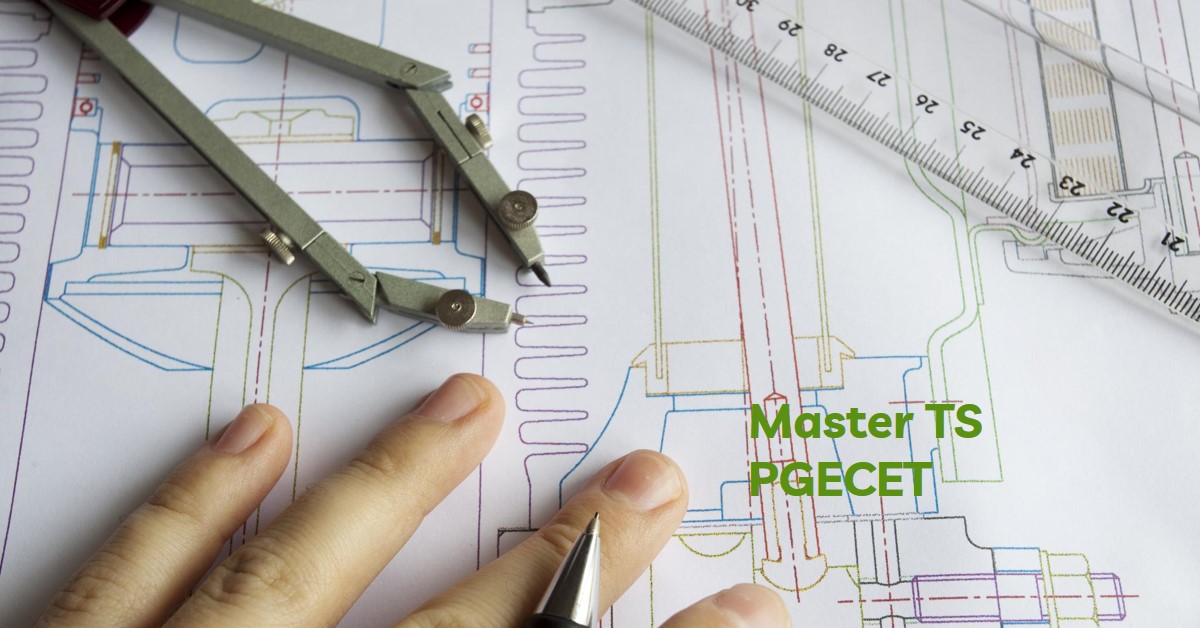Embark on a journey of knowledge! Take the quiz and earn valuable credits.
Take A QuizChallenge yourself and boost your learning! Start the quiz now to earn credits.
Take A QuizUnlock your potential! Begin the quiz, answer questions, and accumulate credits along the way.
Take A QuizTelangana State Post Graduate Engineering Common Entrance Test (TS PGECET) Tutorial

Overview
Overview of TS PGECET
The Telangana State Post Graduate Engineering Common Entrance Test (TS PGECET) is a state-level entrance examination conducted by the Telangana State Council of Higher Education (TSCHE) for admission to postgraduate engineering programs in various colleges and universities located in Telangana. This entrance exam plays a crucial role in determining the eligibility of candidates seeking admission to Master of Technology (M.Tech) and Master of Business Administration (MBA) programs offered by participating institutions.
Eligibility Criteria
To be eligible for TS PGECET, candidates must meet the following criteria:
-
Educational Qualification: Candidates must hold a Bachelor's degree in Engineering/Technology (B.E./B.Tech) or equivalent from a recognized university or institution.
-
Percentage Requirement: For M.Tech programs, candidates should have secured a minimum aggregate of 60% marks in their qualifying degree, while for MBA programs, a minimum of 50% marks is required.
-
Reservation: TS PGECET offers reservations for various categories as per the Government of Telangana's policies. These categories include Scheduled Castes (SC), Scheduled Tribes (ST), Backward Classes (BC), and Economically Weaker Sections (EWS).
Exam Pattern
The TS PGECET exam consists of two papers:
-
Paper 1: This paper is common for all candidates and consists of questions from Mathematics, Analytical Ability, and Engineering Aptitude.
-
Paper 2: This paper is divided into three sections based on the candidate's chosen specialization: Computer Science and Information Technology (CSIT), Electronics and Communication Engineering (ECE), and Mechanical Engineering (ME).
Each paper is of three hours duration and consists of objective-type multiple-choice questions. The total marks for both papers are 150, with 75 marks allocated to each paper.
Application Procedure
The application process for TS PGECET involves the following steps:
-
Registration: Candidates must register online on the official TS PGECET website and create a user account.
-
Filling Application Form: After registration, candidates need to fill out the online application form and provide all the necessary information, including their personal details, academic qualifications, and category details.
-
Uploading Documents: Candidates must upload scanned copies of their relevant documents, such as their qualifying degree certificate, mark sheets, and caste certificate (if applicable).
-
Payment of Fee: The application fee for TS PGECET varies depending on the candidate's category. Candidates can pay the fee online using a debit card, credit card, or net banking.
-
Submission of Application: Once the application form is complete, candidates must submit it online. The submitted application cannot be modified or withdrawn.
It's important to note that candidates must carefully review the eligibility criteria and exam pattern before applying for TS PGECET. Meeting the eligibility requirements and understanding the exam format are crucial for successful preparation and admission to desired postgraduate programs.
FAQs
What is TS PGECET?
Answer: TS PGECET is a state-level entrance exam for admission to postgraduate engineering programs in Telangana.
Who conducts TS PGECET?
Answer: Telangana State Council of Higher Education (TSCHE) conducts TS PGECET.
What is the eligibility for TS PGECET?
Answer: Candidates must hold a Bachelor's degree in Engineering/Technology with a minimum of 60% marks for M.Tech and 50% marks for MBA.
What is the exam pattern of TS PGECET?
Answer: The exam consists of two papers: Paper 1 (Mathematics, Analytical Ability, Engineering Aptitude) and Paper 2 (specialization-based).
How many marks are there in each paper?
Answer: Each paper carries 75 marks, totaling 150 marks for both papers.
Is there any reservation in TS PGECET?
Answer: Yes, TS PGECET offers reservations for various categories as per Government of Telangana policies.
How can I apply for TS PGECET?
Answer: Register online on the official TS PGECET website, fill the application form, upload documents, pay the fee, and submit.
Is it possible to modify the submitted application form?
Answer: No, the submitted application form cannot be modified or withdrawn.
What is the duration of the TS PGECET exam?
Answer: Both papers are of three hours duration each.
What type of questions are asked in TS PGECET?
Answer: The exam consists of objective-type multiple-choice questions.
Start TutorialPosted on 08 Sep 2024, this text provides information on TS PGECET. Please note that while accuracy is prioritized, the data presented might not be entirely correct or up-to-date. This information is offered for general knowledge and informational purposes only, and should not be considered as a substitute for professional advice.
Similar Tutorials

Advanced Excel Charts Tutorial: How to Create Prof...
Learn how to create professional charts in Excel with our advanced Excel charts tutorial. We'll show...

Advanced Excel Functions: Tips and Tricks for Boos...
Are you tired of spending hours working on Excel spreadsheets, only to find yourself stuck on a prob...

Apache Flume Tutorial: An Introduction to Log Coll...
Apache Flume is a powerful tool for collecting, aggregating, and moving large amounts of log data fr...
Explore Other Libraries
Related Searches
Please allow ads on our site
Please log in to access this content. You will be redirected to the login page shortly.
Login
Join Our Community Today
Ready to take your education and career to the next level? Register today and join our growing community of learners and professionals.

Your experience on this site will be improved by allowing cookies. Read Cookie Policy
Your experience on this site will be improved by allowing cookies. Read Cookie Policy


Comments(0)